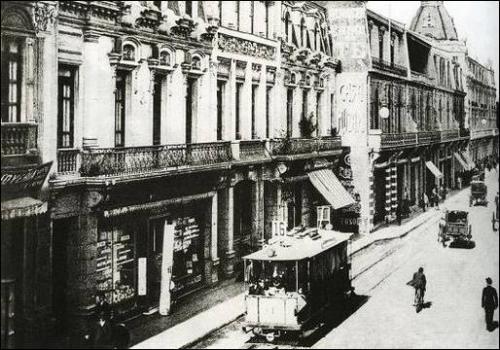Revisando una de mis últimas adquisiciones, tropecé con esto… que les aproveche
Positivist thought in Latin America
Between 1850 and the 1920s European positivism became a major intellectual movement in Latin America. It asserted that all knowledge came from experience; that scientific thinking was the model for philosophizing and that the search for first causes or ultimate reason typical of religion and metaphysics, was an obsolete mode of thinking. Positivism set out to discover the most general features of experience. Its tasks were to use them to explain and predict phenomena, to develop a social science that would furnish objective grounds for moral choice and to help create the best society possible.
In Latin America positivism became a social philosophy which represented a cogent alternative to romanticism, eclecticism, Catholicism and traditional Hispanic values. It offered the prospect of a secular society in which the knowledge gained from science and industry would bring the benefits of order and progress. It assumed that the social sciences had the power to improve the human condition and it demanded political action. Three main currents were in evidence: autochthonous positivism indigenous to the region and concerned with local social and political issues, social positivism derived from Auguste Comte and stressing the historical nature of social change, and evolutionary positivism influenced by Herbert Spencer and asserting the biological nature of society.
Autochthonous positivism emerged in the 1830s from the influx of liberal ideas which followed the wars of independence fought on the US continent by those wishing to gain freedom from Spain. Urging an intellectual revolution, swift social change and material progress, autochthonous positivism paved the way for European positivism proper. Social positivism appeared around the 1850s and argued for the necessity of educational reforms to solve the continent’s problems. It required participation in political life and became a radical force in spite of opposition from supporters of the status quo. By the 1880s evolutionary positivism had steered the movement in a conservative direction in support of laissez-faire policies, individualism and gradual change.
(…)
Chile produced several social positivists, but scarcely any evolutionists. The earliest were José Victorino Lastarria and Francisco Bilbao, both students of Venezuelan humanist Andrés Bello while he resided in Chile. Lastarria came across Comte’s ideas in 1868, although he had anticipated them in ‘Investigaciones sobre la influencia social de la conquista y del sistema colonial de los Españoles en Chile’ (Investigation into the Social Influence of the Conquest of Spanish Colonialism in Chile) (1844) in which he held that all historic movement was towards freedom and progress and that the colonial past, full of errors and dogmas, had to be overcome. Bilbao also blamed the colonial past and Catholicism in particular for Chile’s lack of development. In Iniciativa de la América: idea de un congreso federal de las repúblicas (American Initiative: The Idea of a Federal Congress of Republics) (1856), he suggested the creation of a continental federation of republics which would allow equality, freedom of worship, universal education and would unify the continent under an international law.
As in Brazil, an orthodoxy appeared, led by brothers, Jorge and Juan Enrique Lagarrigue, who had read Comte’s works in the 1870s. An eloquent writer, Juan Enrique applied a positivist analysis to issues of national and international peace, the role of women, socialism, the right to strike and the duty of the priesthood of Humanity to mediate between workers and patricians. He attacked parliamentary governments as bankrupt because they rested on metaphysical foundations. This stand clashed with less orthodox positivists such as jurist Valentín Letelier. Letelier had become acquainted with Comte at the same time as the Lagarrigue brothers and admired the positivist programme, but could not accept the religious dogma or the absolutism of the Système de politique positive (System of Positive Philosophy) (1851-4). This difference was most evident during the conflict in 1891 between an executive backed by conservatives and a liberal congress. Letelier sided with the congress on liberal grounds while the Lagarrigue brothers argued for a dictatorship of the executive to represent another step towards sociocracy.
Fuente: Routledge Encyclopedia of Philosophy, Version 1.0, London: Routledge
P.D: por si acaso, la foto es del Paseo Ahumada, en 1910. Mas fotos aquí.






